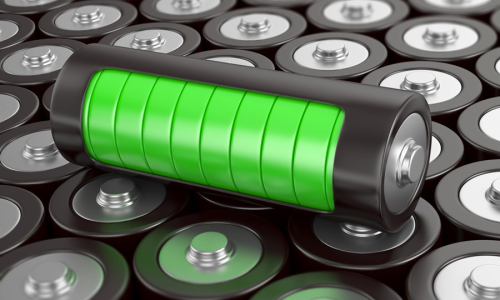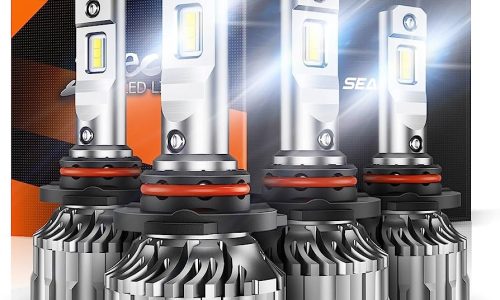
Cars are one of the most popular modes of transportation on the planet. From daily commuters to weekend cruisers, cars have become an integral part of our lives. And with that comes the need for a dependable and efficient engine. One component that makes up a lot of this engine is the exhaust system. And while it may not seem like a huge deal, exhaust systems play an important role in your car’s performance. In this blog post, we will explore how exhaust systems work and how they can affect your car’s performance. We will also look at some common problems and how to fix them. So read on to learn more about these crucial components and how they can affect your car’s overall performance.
What is an Exhaust System?
An exhaust system is a vital component of your car’s performance. It helps to expel harmful gases and particles from the engine, and it ensures that your car has enough power to reach its full potential.
A good exhaust for cars will ensure it sounds smooth and sophisticated when driving at high speeds, while a poorly designed system may make your car sound unpleasant and noisy.
In addition to sounding bad, a poorly designed exhaust system can also cause problems with your car’s performance. A weak or malfunctioning exhaust system can reduce the amount of air that enters the engine, which can lead to reduced fuel efficiency and reduced power output.
What are the Components of an Exhaust System?
An exhaust system is made up of various components that work together to remove harmful gases and particles from an engine’s exhaust. The system includes the muffler, tailpipe, and catalytic converter.
The muffler is a conical device that typically sits between the engine and the exhaust pipe. It helps to reduce noise and emissions by trapping escaping air and gas. The tailpipe is a long, streamlined tube that leads out of the vehicle. It connects with the muffler and contains all of the system’s internal features, such as a flue or tailpipe outlet.
The catalytic converter is an important part of most exhaust systems. It’s a metal box that sits on top of the engine’s exhaust pipe and converts pollutants into less harmful compounds. This process helps to reduce CO2 levels in the atmosphere and improve air quality.
How Do Exhaust Systems Affect Car Performance?
The exhaust system on a car emits fumes and noise that can affect the performance of the vehicle. The type of exhaust system, as well as its size and design, can have an impact on how efficiently the engine can use air and fuel, as well as the car’s overall performance.
There are three main types of exhaust systems: catalytic converters, mufflers, and tailpipes. A catalytic converter is a device that reduces harmful emissions from the engine. Mufflers reduce the noise made by the exhaust system, while tailpipes direct expelled gas out of the rear of the car. All three types of exhaust systems have different impacts on car performance.
Catalytic converters are generally considered to be the most effective at reducing emissions levels. However, they also tend to have the weakest effect on noise levels. Mufflers tend to reduce both emissions and noise levels moderately but may cause reductions in fuel efficiency. Tailpipes generally produce more noise than either mufflers or catalytic converters but also reduce emissions levels more than either type of system. Ultimately, each person’s driving style will impact which type of exhaust system is best suited for their own car.
How to Maintain Your Exhaust System
Exhaust systems are essential pieces of automotive equipment that help to improve the performance and fuel economy of your car. However, like any mechanical component in a car, exhaust systems can wear down over time. If you’re not careful, this can cause your car’s performance to decline and its fuel economy to drop. Here are some tips on how to keep your exhaust system in good condition:
- Clean it often: One of the best ways to prevent exhaust system damage is to clean it regularly. Use a good quality cleaning product and make sure to apply pressure while cleaning. This will help remove built-up debris and bacteria.
- Inspect it regularly: Another way to keep your exhaust system healthy is to inspect it frequently for signs of damage or wear. Look for rusting or peeling metal, faulty hangers, or cracked pipes. If you notice any problems, take action immediately before they become too serious.
- Replace parts when necessary: If you notice any signs of damage or wear, it’s time to replace parts as needed. This may include mufflers, clamps, joints, or pipes. Be sure to get replacement parts from a reputable source so you can ensure they’re compatible with your vehicle and provide the best possible performance.
Conclusion
When it comes to car performance, exhaust systems are one of the most important parts. A good exhaust system will not only make your car sound louder and more aggressive, but it will also help improve your fuel economy and acceleration. However, not all exhaust systems are created equal and some can have a negative impact on your car’s performance. If you’re ever wondering how different exhaust systems affect your car’s performance, be sure to consult with a mechanic or visit an online resource like Car Tuning Warehouse for more information.




